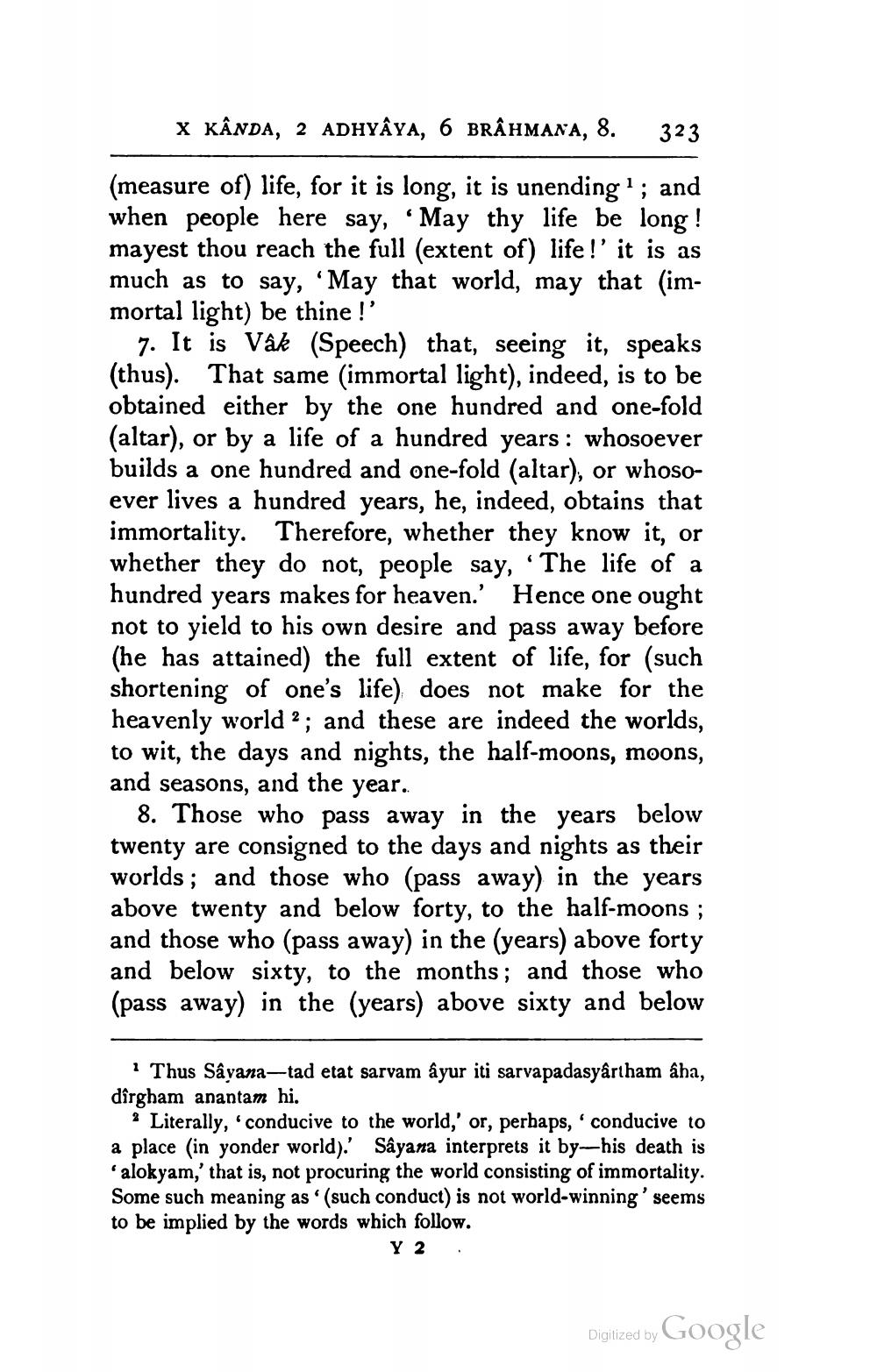________________
X KÂNDA, 2 ADHYAYA, 6 BRAHMANA, 8. 323
(measure of) life, for it is long, it is unending 1; and when people here say, 'May thy life be long! mayest thou reach the full (extent of) life!' it is as much as to say, 'May that world, may that (immortal light) be thine!'
7. It is Vâk (Speech) that, seeing it, speaks (thus). That same (immortal light), indeed, is to be obtained either by the one hundred and one-fold (altar), or by a life of a hundred years: whosoever builds a one hundred and one-fold (altar), or whosoever lives a hundred years, he, indeed, obtains that immortality. Therefore, whether they know it, or whether they do not, people say, 'The life of a hundred years makes for heaven.' Hence one ought not to yield to his own desire and pass away before (he has attained) the full extent of life, for (such shortening of one's life) does not make for the heavenly world 2; and these are indeed the worlds, to wit, the days and nights, the half-moons, moons, and seasons, and the year.
8. Those who pass away in the years below twenty are consigned to the days and nights as their worlds; and those who (pass away) in the years above twenty and below forty, to the half-moons; and those who (pass away) in the (years) above forty and below sixty, to the months; and those who (pass away) in the (years) above sixty and below
1 Thus Sâyana-tad etat sarvam âyur iti sarvapadasyârtham âha, dîrgham anantam hi.
* Literally, 'conducive to the world,' or, perhaps, conducive to a place (in yonder world).' Sâyana interprets it by his death is 'alokyam,' that is, not procuring the world consisting of immortality. Some such meaning as '(such conduct) is not world-winning' seems to be implied by the words which follow.
Y 2
"
Digitized by
Google




